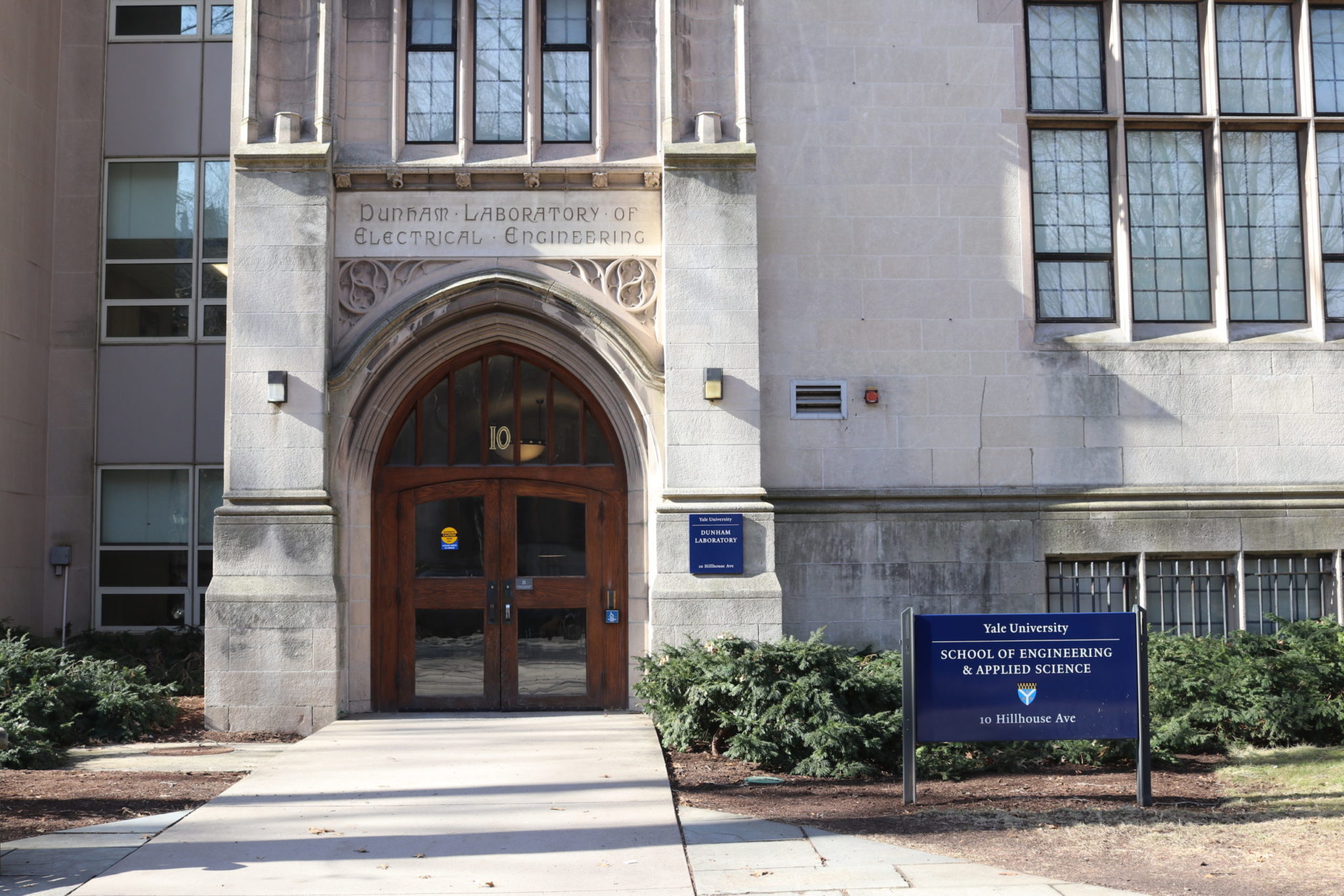
Kai Nip, Staff Photographer
The U.S. News and World Report ranked Yale’s undergraduate program in environmental engineering as 11th in the country in their annual list.
Each year, the U.S. News and World Report, typically ranks the top five environmental engineering undergraduate programs in universities across the country. This year, however, the publication’s list was expanded to 27 programs, with Yale coming in at 11th for environmental engineering. Yale’s graduate program in environmental engineering has been included in the top 10 for the past several years.
“I was very excited,” said Jaehong Kim, chair of the Department of Chemical and Environmental Engineering. “Our graduate program has been ranked pretty high for the past few years … and naturally we were hoping that our undergraduate ranking goes up, as we also pay a lot of attention to improved quality of undergraduate education. So we were very thrilled to see the news.”
According to Kim, the rankings are not based on statistics about the department but is rather a “peer evaluation” — meaning an emphasis is placed on the program’s reputation and how well-known the department is in the field. Chairs, deans and senior members in the field vote on a given school’s program based on these criteria in order to produce the final list. As such, Kim noted that larger and older departments have an advantage in the rankings.
Yale’s department does not have the upper hand in terms of history or size — making this recognition all the more noteworthy. The Environmental Engineering Department is relatively smaller in size compared to other schools — with six faculty members and 32 undergraduate students in the major — and was only established in 1998 by professor of chemical and environmental engineering Menachem Elimelech.
Still, Kim said that he is “particularly pleased” that the program is succeeding despite its small size. He attributed this to all the members of the department — both students and faculty — who are doing important work in the field.
Elimelech echoed the sentiment, stating that “the dedication and quality of the students and faculty is the major strength [of the department].”
Chair of the Environmental Engineering Undergraduate Club Marlena Hinkle ’21 said that she was not surprised by the news and added that the faculty are enthusiastic teachers, as well as researchers.
“They’re all wonderful professors and teachers,” she said. “Their research is excellent, but they also really value student learning, and it really shows in the classroom how much they care for their students, not just our intellectual journeys, but also us as people.”
Hinkle noted that Kim, who teaches “Water Quality Control,” made an effort to get lunch with every student in the class.
Hinkle also said that she enjoys the interdisciplinary aspect to her classes, adding that activities can range from design projects completed in the Center for Engineering Innovation Design to work with public health students for an urban sanitation class.
Looking to the future, the department is planning to tap into the interdisciplinary nature of environmental engineering and will continue collaborating with other groups at the University — including the School of Architecture, the School of the Environment, the School of Public Health and the Department of Chemistry.
These goals are in line with the focus areas presented by the University in its recent updated academic strategy message, as well as the “five ideas for top-priority investment” described in the University Science Strategy Committee’s May 2018 executive summary.
Particularly, Kim said that the department embodies the “engineering + X” idea expressed in the USSC report — with “X” representing groups of engineering faculty working in collaboration with different departments across the University in specific research areas.
Elimelech outlined a similar direction for the program.
“We will also work to leverage courses and expertise in other schools, like YSE and YSPH, to further enhance the course offering and research experience to our undergraduate students,” Elimelech wrote in an email to the News.
Yale offers both a Bachelor of Science and a Bachelor of Arts in environmental engineering.
Maya Geradi | maya.geradi@yale.edu







